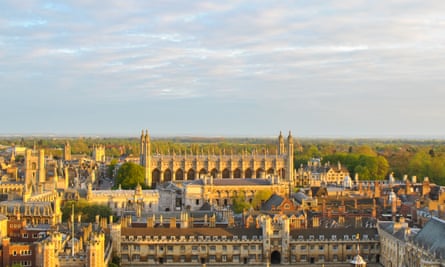Cathy Newman has written a bloody brilliant book. Bloody Brilliant Women (perhaps a cheeky takedown of Ken Clarke’s description of Theresa May as a “bloody difficult woman”) is one of a few recent titles celebrating lesser known women – or, as the subtitle of Newman’s book puts it, “the pioneers, revolutionaries and geniuses your history teacher forgot to mention”. It is an excellent addition to volumes such as Modern Women: 52 Pioneers by the Guardian’s Kira Cochrane; Zing Tsjeng’s Forgotten Women series; and Hannah Jewell’s riposte to Trump, 100 Nasty Women of History.
It turns out that Newman, a Channel 4 broadcaster, is a riveting teller of history. We are given an insight into the lives of women from Queen Victoria (who pointed out men taking credit for women’s achievements, but also vehemently opposed “the mad, wicked folly of women’s rights”) to the suffragists and suffragettes fighting for franchise (the Pankhursts do not come off particularly well), political pioneers and present daytoday’s female advocates of the arts.
The case studies are smartly selected. Elizabeth Garrett Anderson was already a hero of mine. But I had never heard of her fellow physician, Sophia Jex-Blake, who also established her own hospital. We are introduced to Emily Hall, who, with the help of her family, overturned the law that allowed men to lock their wives up. These fascinating but unknown women’s stories would be lost if books such as this didn’t document them.
Newman points out that the likes of the Brontës and Florence Nightingale, though great figures, have almost become “brands” (I am sure there are tote bags and mugs). She also corrects further historical wrongs in including diverse women often sidelined: women of colour, trans women and those with disabilities. In particular, asylums play a prominent role.
As the book is UK focused, its exploration of key British institutions is expansive: women were not granted full membership of the University of Cambridge until 1948 (despite Newnham being established in 1871); the first female MP was Sinn Féin’s Constance Markievicz (who, as is customary with Sinn Féin MPs, did not take her seat); Rachel Beer edited both the Observer and the Sunday Times in the late 19th century. There is a rather brilliant tale of the first woman who ever voted, which came about by her being added to the electoral roll by mistake (her vote was later voided). The 1997 Labour influx of female MPs – or “Blair’s babes”, as they became known, thanks chiefly to the Daily Mail – is analysed. Everyone knows Nye Bevan, the creator of the NHS. But I had no idea that his wife, Jennie Lee, was formidable in her own right, becoming, at 24, the then youngest female MP, and serving as arts minister between 1964 and 1970. “So much loved by the public that when she attended a play, the audience would applaud as she took her seat,” notes Newman. Lee “beefed up the Arts Council and saved the National Youth Orchestra”.

The portrayals of the women in this book are not hagiographic: Marie Curie visits a field hospital run by women during the war, but doesn’t lift a finger to help; Emmeline Pankhurst is a neglectful and sometimes cruel mother. The topic of motherhood itself is looked at thoroughly, including particular prejudices: Clare Short feared her career as an MP “would be over” when it became public in 1993 that she had put up for adoption the son she had as a 17-year-old.
There are enjoyable anecdotes aplenty. But it’s not all a comfortable read. The detailed execution of the wartime nurse, Edith Cavell, by German firing squad, is harrowing. You might know her statue in Trafalgar Square; you may not have known her story.
Newman is a brilliant writer; each chapter throws up something even more interesting than the last and the prose shifts seamlessly between them. She is also very good at drawing parallels between then and now. Women working in munitions factories during the first world war were paid far less than their male counterparts, she tells us, also describing the famous Dagenham workers’ strike in 1968 and today’s equal pay (and pay gap) revelations. The outraged letters women’s activities received centuries ago? Not so different from Twitter abuse. As a bonus, the middle section of the book features glossy photographs of some of her subjects. I could read a whole second volume.
